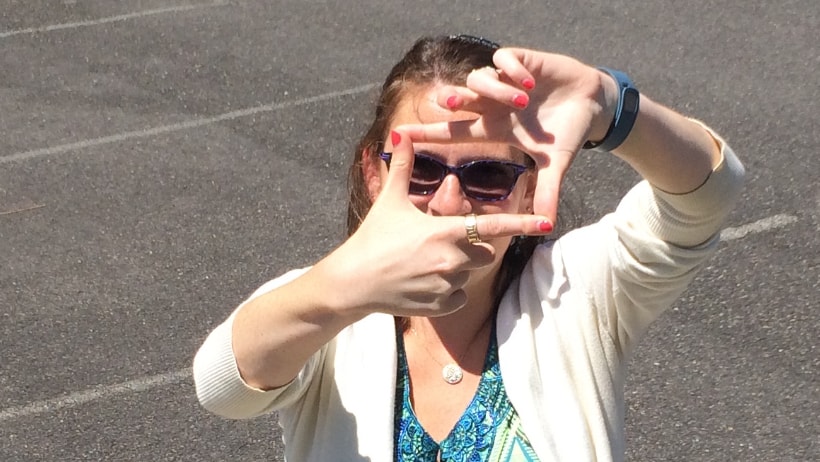When I was 13 years old and celebrating my Bat Mitzvah, somehow it was clear to everyone that I would become a rabbi. As for me? I was a typical teenager, so of course I thought they were completely nuts. Ok, yes, I loved being in the synagogue. Sure, I wanted to push the boundaries of what women were allowed to do in my shul. Alright fine, I was a natural Torah reader and thrived standing on the bimah. Well now that I think about it, I guess the signs were pretty clear.

But at that age, in my mind there was no way I was going to be a rabbi. This continued to be my train of thought as I worked through high school, despite the fact that I lived in Israel for a semester and, upon my return, wanted only to study Hebrew, Israel, and Judaism. In college I was also active in Hillel, leading the conservative minyan and basically acting as a one-person religious life committee. Then there was my job as youth advisor and Hebrew school teacher at the conservative shul in town.
I mean come on! Who I was on the outside screamed “Rabbi!” Except inside, I didn’t believe that was my path. How could I have totally missed these obvious clues? Part of the reason is because I fully expected to use my college degree in Judaic Studies towards Jewish communal work, or perhaps Jewish education. That is until Rabbi Abby Treu, who then worked at University of Michigan Hillel, finally opened my eyes. She convinced me that more than anything, I was hiding from my own insecurities, my own disbelief that I could be a rabbi. She saw something in me I didn’t see – that I couldn’t see – and I am so grateful for that push of enlightenment.
This week in our parshah, the Israelites follow a story not so different from mine as we enter into the final book of the Torah, D’varim (Deuteronomy). D’varim stresses the covenant between God and Israel and looks toward Israel’s future in a new land as they build a society that pursues justice and righteousness. The central theme of this section of text is monotheism, the belief in one God, and building a society around the laws we’ve been given over the course of the four previous books.
The book begins “These are the words that Moses addressed to all Israel on the other side of the Jordan.” Addressing words to all Israel? How is this possible? Isn’t this the same Moses who at the beginning protested this leadership role, stating that he was not ish d’varim, a “man of words”? Know anyone who’s afraid of public speaking? Moses started that. And yet, here he is years later confidently sharing his message with the people. Moses didn’t take speech classes or join the Mount Sinai debate team. His speaking ability didn’t necessarily improve, but he did accept that this was his calling, and he embraced it wholeheartedly. In doing so he led a nation and was true to himself.
Had Moshe not had the nagging voice of God pushing him to move forward, to speak, to assume his role as leader, he never would have grown into himself, and he never would have made such an impact on our people and our history. Let’s face it, our story as we know it would be completely different. And had my friend Rabbi Treu not pushed me to consider the obvious evidence before me, I never would have had the courage to apply to rabbinical school, and I doubt I’d have found as much satisfaction in my career choice. Now I can say with certainty that being a rabbi feels like exactly what I want to do with my life.
We begin the final book in the Torah by understanding that our success in life comes from growing into our own selves. Sometimes it’s hard on your own to recognize what makes you truly happy, but when the right person can help reflect that back to you, it makes all the difference. In this Shabbat of Hazon, this Shabbat of Vision, we are inspired to envision ourselves as we want to be, with all the potential others see in us. This is your push. Shabbat shalom.
– Rabbi Eve Posen
Source: The You That I See – Parshat D’varim 5775 – Rabbi Eve Posen



